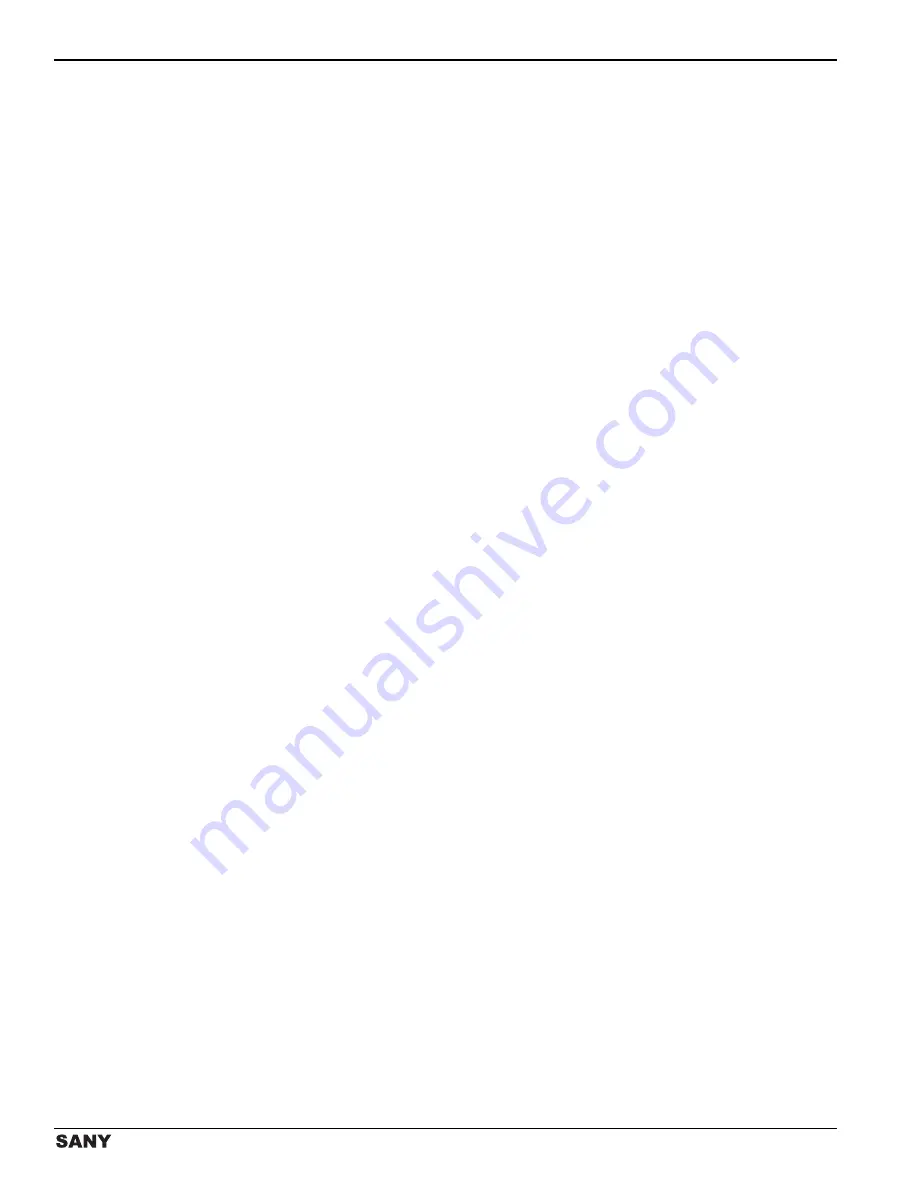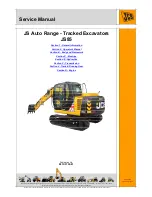
5-6
MAINTENANCE
SY60C Excavator OMM
Inspection and Maintenance for
Severe Operating Conditions
If the machine will be operating under adverse
conditions:
• Check and clean any electrical components to avoid
any accumulated corrosion.
• Check and clean any areas where extreme heat is
present, such as the exhaust system, manifold, and
turbocharger.
For heavy-load operation, add grease to the pins of the
work equipment prior to each operation. Cycle the
operation of all working parts several times before
refilling with additional grease.
Mud, Rain, or Snow Conditions
Before operating the machine, inspect for loose
connectors, tighten as required.
After operating the machine, clean the machine and
inspect for missing or loose fasteners. Add oil and
lubricating grease as needed.
Near Ocean (Salt Air) Environments
Before operating the machine, inspect for any signs of
corrosion. Apply grease where rust is found.
After operating the machine, thoroughly wash away the
salt residue, apply grease where rust is found, and
perform maintenance carefully on the electric
components to prevent corrosion.
Dusty Environments
Clean the following components:
• Engine air filter: Clean the dust valve frequently.
Immediately service the air filter and air filter
housing whenever an air filter restriction warning is
displayed. See “Check and Replace the Air Filters”
on page 5-20.
• Radiator: Clean the radiator core frequently to
prevent blockage.
• Fuel equipment: Drain sediment frequently.
• Fresh-air and recirculation filters: Clean the filters
frequently.
Cold Environments
In extremely cold environments, 32°F (0°C) or below, use
only the fuels, lubricants, and engine coolants listed in
“Recommended Lubricants, Fuel, and Engine Coolant”
on page 5-7.
Engine coolant is an important fluid protecting against
engine freezing and coolant boiling. Make sure the
engine coolant is at a high enough coolant/water
concentration to prevent freezing. Refer to the coolant
manufacturer’s instructions for checking the
concentration required for the expected temperatures.
Prior to starting the engine, make sure the battery is fully
charged and the battery case and the cables have not
cracked. See “Cold Weather Operation” on page 4-30.
Other Weather Environments
NOTE:
If there is evidence of overheating of bearings or
bushings, loose parts, or rust during regular
inspection, increase the frequency of lubrication.
Based on experience and suggestions by lubricating oil
suppliers, the lubricating intervals listed in the
“Maintenance Schedule” on page 5-9 apply only to
normal operating conditions. In harsh environments,
including those with dusty and corrosive air, abnormal
external temperature, extremely heavy overload,
frequent operating times, long-time duty cycle, etc.,
lubricating intervals should be shortened.
Check the Maintenance Log
The maintenance log lists regularly scheduled
maintenance that should be performed by the operator or
service personnel. All maintenance performed on the
machine must be recorded in the maintenance log.



































